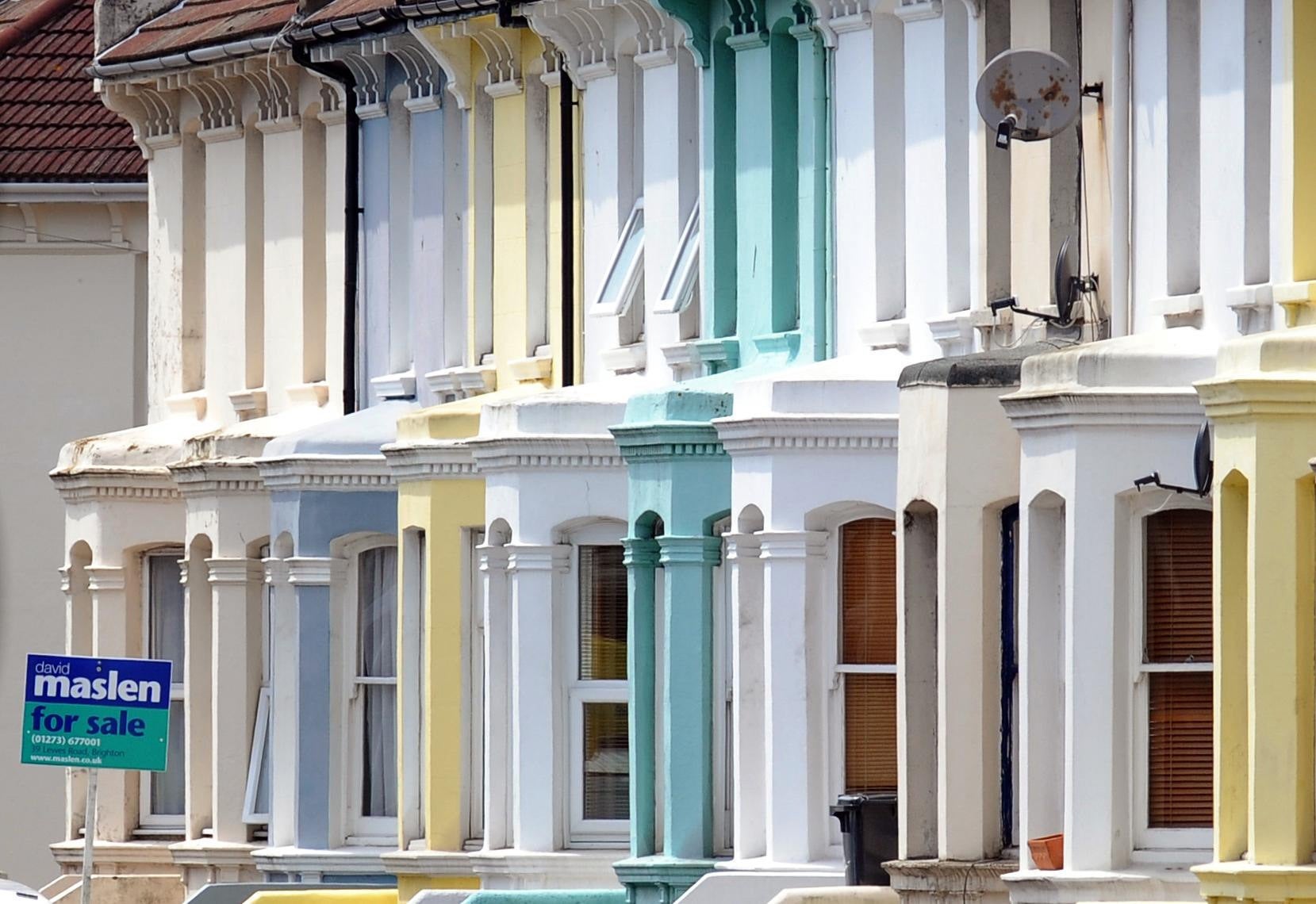Marathon mortgage: could a 35-year loan solve your house price problem?
Or are we simply storing up trouble for the future, asks Kate Hughes


Once upon a time, if we were lucky enough, we bought a first home in our twenties with a 20- or 25-year mortgage.
By the end of our working lives we would be clear of housing debts – just in time for our incomes to drop. Maybe, just maybe, there would be a golden decade when the debts were cleared and our earnings peaked. That all sounds like another country to most of today’s mortgage holders.
In fact, in a bid to overcome an average house price of just under £283,000 – up a breathtaking 11 per cent on last year despite a battery of economic assaults from the patchy pandemic recovery to runaway inflation – would-be buyers in their mid-30s are now reaching for loans they could still be paying long after they stop earning.
Recent freedom of information (FOI) data requested from the Financial Conduct Authority shows the stamp duty holiday, introduced in July 2020 and gradually rolled back between July and September last year, triggered a surge in the number of mortgage sales with a term of 35 years or longer.
Many people viewed the stamp duty holiday as an opportunity to purchase a larger, more expensive house than they would otherwise have been able to. In order to secure an affordable mortgage on the property, the figures suggest many opted to take out a longer mortgage term than they otherwise would have. In doing so, however, they will have committed to paying a higher level of interest over the duration of their mortgage, wealth adviser Quilter – which made the FOI request – warned.
In June 2021, 35,046 mortgages were sold with a term of 35+ years, a staggering 209 per cent increase compared with 11,320 in June 2020. In September 2021, 28,112 were sold, a 73 per cent increase compared with 16,066 in September 2020.
With the average first-time buyer age currently sitting at over 33, UK Finance, the trade association for the banking industry, calculates that more than half of new mortgage borrowing is being taken on by those who will still be paying it off after they turn 65 – the age most people now anticipate retiring.
But, as the traditional 25-year loan starts to feel redundant at best, how big a deal is a marathon mortgage? And what will it cost us?
“Most lenders will offer longer terms of 35 years and even beyond, depending on the borrower’s age when taking out the mortgage,” says Jonathan Harris, managing director of mortgage broker Forensic Property Finance.
“Lenders will base the mortgage term on normal retirement age so if you are in your early thirties, say, there is no reason why a longer term shouldn’t be considered. It helps with affordability as your monthly payments are lower and, because the mortgage will likely be on a repayment basis, it will be paid off by retirement, so there is no risk with regard to still paying off your mortgage once you are drawing your pension.
“The main issue with a longer-term is that you will pay more in the long run as you will make more interest payments.”
That could be a big issue.
Cash-strapped borrowers may be tempted to lower their monthly payments by opting for a longer-term, particularly as interest only is less readily available, but Mark Harris, chief executive of mortgage broker SPF Private Clients, calculates that even on a modest mortgage by today’s inflated standards, that decision could mean tens of thousands of extra pounds spent on interest.
“If you borrow £150,000 over 25 years on a repayment basis at a rate of 2.74 per cent, your monthly payment will be £691.19 and the total cost would be more than £207,359,” he says.
“Increase that to 35 years and the monthly payment falls to £555.73 but the total cost rises considerably to £233,407.”
If you borrow £200,000, taking the plunge on a longer mortgage becomes considerably more expensive. While your monthly payment over 25 years would be £921.59 with a total cost of £276,479, over 35 years you’d be paying £740.97 per month – but the total would come in at £311,209 by the time the loan had run its course.
If you are opting for a 35-year-term, you might wish to consider trying to shorten the term when you come to remortgage, or overpay to clear the balance more quickly.
“There is likely to be an issue if you are a relatively ‘older’ first-time buyer. Most lenders will want to ensure that your mortgage is paid off by retirement, so if you are hoping for a 35-year term, this may not be possible,” Harris warns.
“However, you can always overpay as and when you can in order to clear the balance more quickly and shorten the term, using your penalty-free allowance – usually up to 10 per cent of the mortgage amount per annum.”






Join our commenting forum
Join thought-provoking conversations, follow other Independent readers and see their replies
0Comments